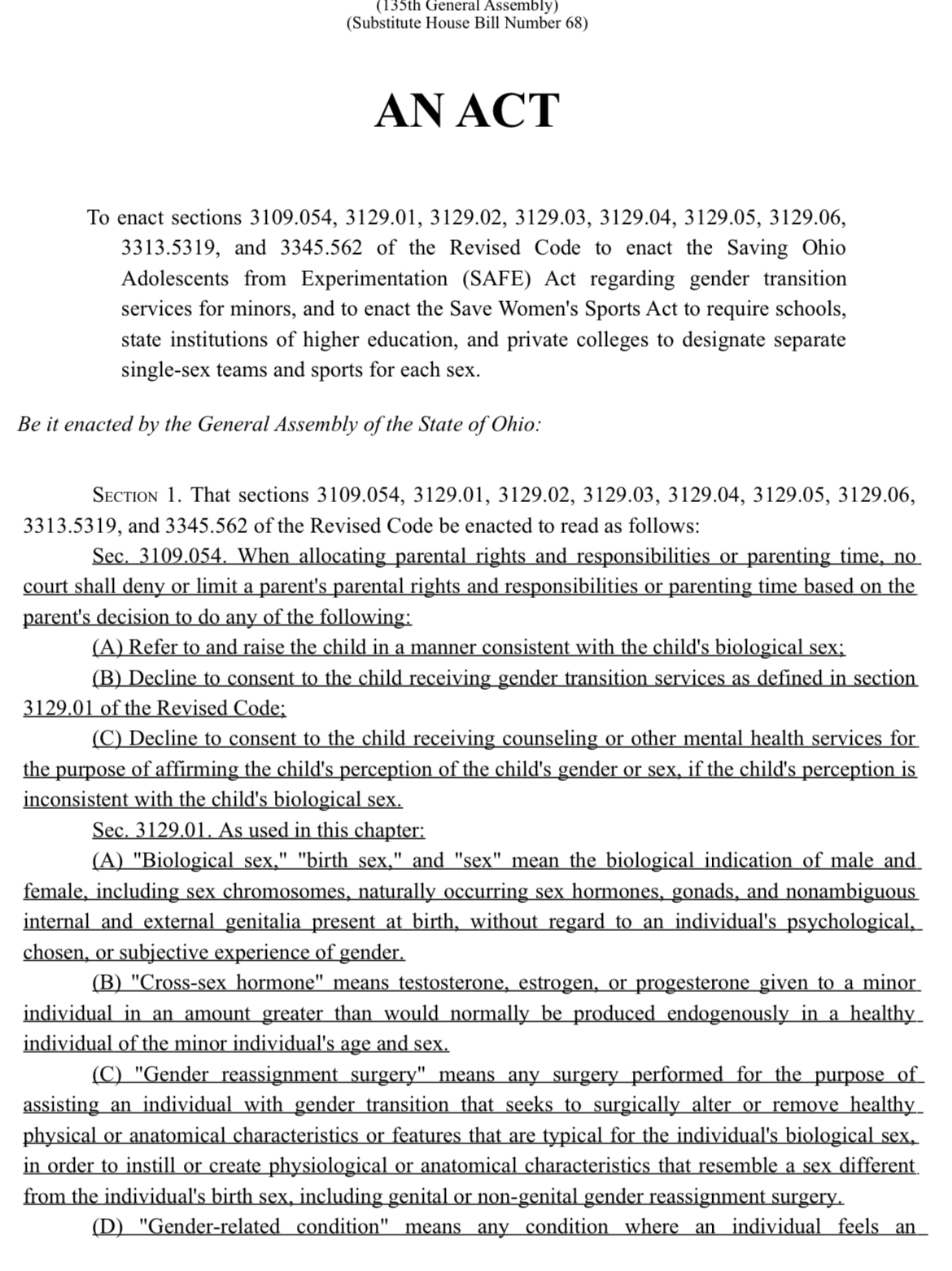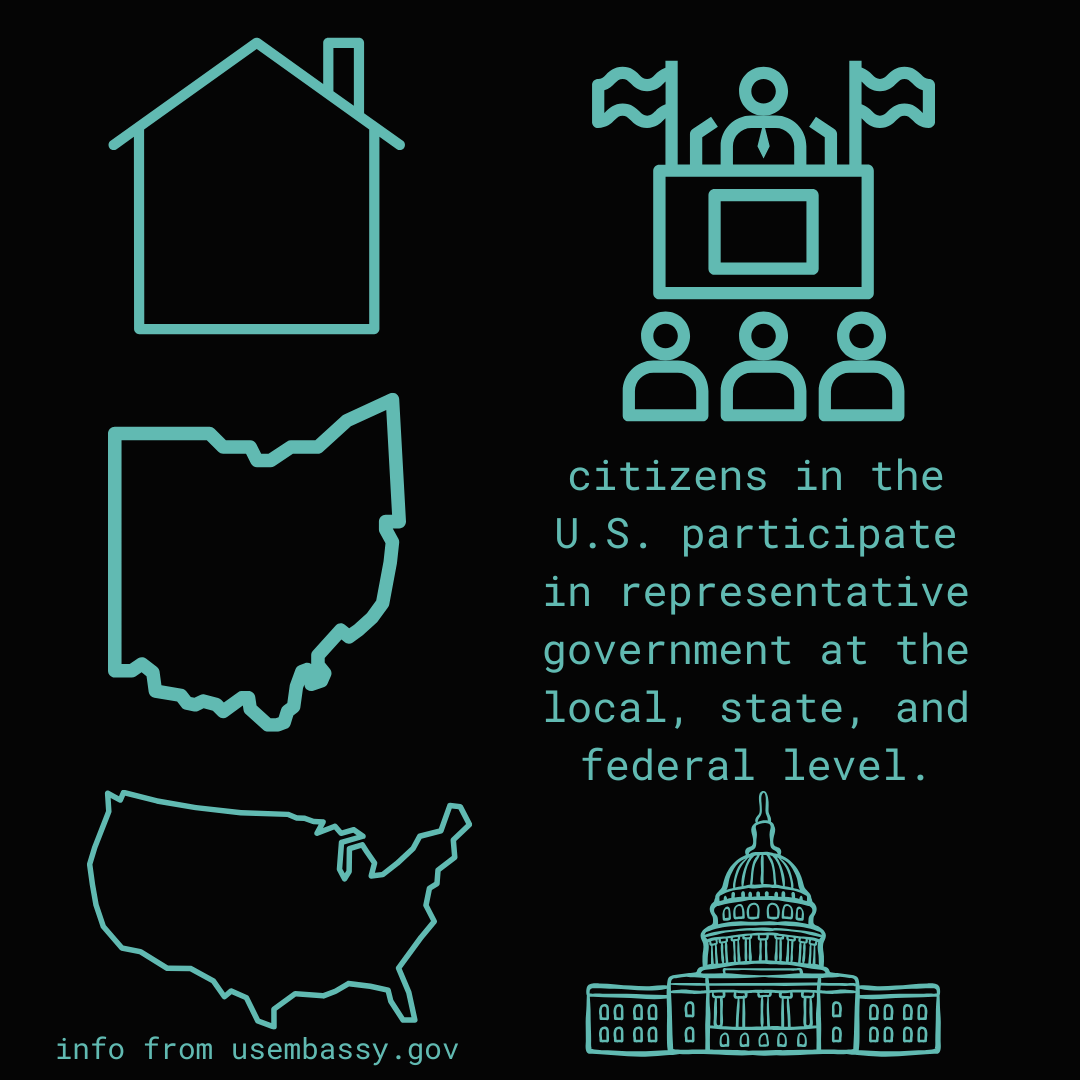The Ohio legislature voted January 10, 2024 to override Governor Mike DeWine’s veto of transphobic HB 68. Just before that, the governor revealed a de-facto ban on gender-affirming care of youth. In a speech given at a press conference on Friday, January 5, the Governor also made statements about changes to the healthcare access for trans adults. Governor DeWine said that adults who are trans require a team including “bioethicists, endocrinologists, and psychiatrists.”
The governor also stated that the Ohio Department of Mental Health and Addiction Services (OMAS) and the Ohio Department of Public Health (ODPH) will collaborate on drafting rules to enforce restricting gender-affirming care across the lifespan.
What is OMAS?
The Ohio Department of Mental Health and Addiction Services (OMAS) partners with local mental health boards for all 88 counties. These boards are called Alcohol, Drug, and Mental Health (or ADMH) boards. Funding from OMAS goes directly to local mental health services, like in-home therapies, syringe exchanges, opioid response teams, and crisis services. Additionally, OMAS is responsible for the six regional psychiatric hospitals for inpatient mental health treatment.
OMAS’s Mission is to, “provide statewide leadership of high-quality mental health and addiction prevention, treatment, and recovery that is valued by all Ohioans,” according to their website. The state agency is also responsible for collaboration with law enforcement for Crisis Response Intervention Trainings, and harm reduction supplies.

DeWine and Funding OMAS
Mike DeWine gave $90 million to OMAS last August. These funds were then made available to local ADAMH boards “who work with law enforcement, hospitals” and others for “collaborative changes” to community mental health.
Earlier that year, in April, DeWine’s office gave OMAS $2.9 million in federal funding for, “behavioral health responses to traumatic events.”
Last January, DeWine set forth a budget prioritizing adoption, foster care, mental health, and attracting people to Ohio. Lori Criss, former Director of OMAS, left her position as of December 1, 2023. Replacing her is LeeAnne Cornyn. Cornyn’s experience in mental health, according to a press release, involves working for years as deputy chief-of-staff for Mike DeWine. Under DeWine and Husted, the press release states, Cornyn ensured children on Medicaid with “severe mental health issues stay in state.”
On January 7, Ms. Cornyn wrote a piece for the Dayton Daily News. It reads, in part:
“it is also mental health awareness month, a national movement to raise awareness about mental health, and call attention to the intersection of physical and mental wellness. This January, we at the Ohio Department of Mental Health (OhioMHAS) encourage you to resolve to focus on your mental and emotional health as a way to improve your overall well-being.”
Verbal changes to adult trans healthcare
Changes given verbally by the governor will be difficult for an organization like OMAS–dedicated to mental-health treatment–to implement. Gender-affirming care in mental health is already efficacious treatment. Restricting access to it, either by making it illegal or difficult to access financially and tangibly, is a contradiction of the stated values of OMAS and most individuals connected to it.
Trans parents, who surely exist in Ohio, were completely ignored at DeWine’s press conference. HB 68 adds to this, setting the standard that a parent who refuses to provide gender-affirming care to their own children may do so. This broadens the so-called trans debate from public toilets and classrooms to their very own homes. It also neglects to recognize that trans or otherwise gender-diverse parents exist as parents.

What is Gender-Affirming Mental Healthcare?
Trans youth are at risk for suicidal ideation, anxiety, and interpersonal violence fueled by social stigma. Lack of access to care because of discrimination is a direct cause of these symptoms noted across research sectors.
Data does exist regarding preventing these symptoms by providing gender-affirming care. Gender-affirming care is an umbrella term that essentially amounts to a gender-diverse person having their name and pronouns used. This validates identity. This decreases mental health symptoms, increases self-confidence, and improves quality-of-life.
Gender dysphoria is a diagnosis required for providing gender-affirming-care. Gender dysphoria is a diagnosis recognized for symptoms felt by individuals living outside an accepted gender binary. This disorder is present only in societies like ours which favor a binary view of gender equated with biological sex. (the Diagnostic and Statistical Manual for Mental Disorders, 5th Edition, the American Psychiatric Association, 2013, page 455).
Professional ethics and trans healthcare
Licensed professionals in the State of Ohio who practice mental health do so because of a lot of work. First, there is a bachelor’s degree in social work or a master’s degree or higher for counseling. Master’s-level education programs for social workers and counselors are generally taught by PhD-level scholars. Educational institutions with these programs have accreditation boards. Research guides professional ethics for mental health providers similar to the physician’s Hippocratic Oath.
Counseling ethics, for example, stands on the commitment to harm no one. This is encapsulated in it’s values. These values highlight human dignity across the lifespan, emphasize individual autonomy, and a refusal to cause harm.
The Ohio Counselor, Social Worker, Marriage and Family Therapist Board (CSWMFT) is responsible for making sure that practicing therapists are practicing ethically.
Removing life-saving treatment?
The rules to be drafted by the Ohio Department of Public Health and OMAS means that healthcare providers are in the position to remove treatment options that align to ethical, life-saving, treatment.
When I worked as a therapist, I provided gender-affirming care. Doing so meant that I “met the client where they were at.” I used their name and pronouns they told me worked for them. While it’s been years since I worked with minors, I was happy to provide them a safe space in which to express themselves without judgment–a hallmark from “Psychology 101” classes and the art of Rogerian therapy.
It’s impossible for myself to envision a society in which I live in, where therapists are restricted legally from meeting a client where they’re at. How this will impact mental health care across the state of Ohio remains unclear.
Everyone in Ohio will likely be impacted
When the governor stated that there’s not data regarding gender-affirming care, that’s not factually correct.
What isn’t yet proven is how something like ignoring that will impact the larger whole of Ohio.
Trans or cis-gendered, queer or straight, everyone in Ohio will be impacted once these laws and rules are in place. The state dictating treatment is outside the scope of government, and this unprecedented moment in time is one which will have repercussions for generations.
Looking for mental healthcare in Ohio?
For mental health addiction, treatment, and assessment, try SUN Behavioral in Columbus.
Check out Psychology Today’s therapist search for in-person or remote therapists anywhere in the State here.
Check out Inclusive Therapists
The effort to end gerrymandering is gathering steam. Read more here.
DIY grief? Try Alexander Hardy’s free resources.




